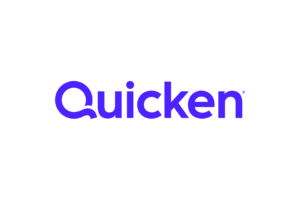How to Compare Loans When Buying Your First House
Date: February 2, 2017
Home loans might seem intimidating to new borrowers because they require more than just pinning down the interest rate or determining what your monthly payment will be. However, choosing a home loan is really just a matter of knowing what you’re paying for and comparing what each lender is willing to offer. Then you can determine who’s offering you the best deal.
Find a Lender
The Federal Trade Commission recommends approaching several different reputable lenders before signing for a home loan. You can ask a mortgage broker to do this for you, but he’s under no obligation to find you the best deal unless he’s agreed to act as your agent. His job is to contact several lenders on your behalf and provide you with the results.
If you contact mortgage company reps directly, they’ll tell you in advance what loan amount you’re likely to qualify for, according to Maria Sacco Handle, a sales representative with Berkshire Hathaway HomeServices in New Jersey. “He or she can also give you some suggestions about what you might possibly do to qualify for more,” says Handle.
That All-Important Interest Rate
When you’re comparing loans and lenders, keep in mind that all interest rates are not created equal. Taking out an adjustable-rate mortgage (ARM) means that your mortgage payment will most likely go up in the future if interest rates rise based on national index rates. You could end up paying more interest five years from now than if you had taken a fixed-rate mortgage where the interest rate is locked in, even if it’s a little higher than the current adjustable rate. ARM interest rates are typically lower at the onset to allow for this eventuality.
Of course, your credit history will affect your interest rate, too. Avoid making mistakes that can hurt your score in the months leading up to applying for a mortgage, such as missing payments. Turn to Quicken Starter Edition to help you keep track of your budget, your existing loan payments and your credit score.
Extra Charges: Points
Points are fees paid to your lender for various costs associated with implementing your home loan. Points go hand-in-hand with your interest rate — the more points you pay upfront, the lower your interest rate is likely to be. If a lender offers you a pretty terrific rate, find out how many points you’ll be paying in exchange. Ask for a dollar equivalent to know exactly what you’ll be paying — one point equals 1 percent of the amount you’re borrowing. You’ll either have to come up with this money in cash at closing, or you may be able to roll it into your loan — but, of course, you’d then pay interest on it.
Your Down Payment
Another vital component of a home loan is how much you’re willing to put down. Most lenders look for 20 percent, although you may be able to put down significantly less if you take out a government-backed loan like an FHA or VA mortgage. Be prepared to pay for private mortgage insurance if your down payment is less than 20 percent of the purchase price. The insurance acts as a guarantee of payment to the lender if you default on the loan. These premiums are added to your mortgage payment, so they might bump it up by as much as $200 per month depending on the amount you borrow.
The Bottom Line
Your monthly mortgage payment — and whether you’ll be able to consistently afford it going forward — is really the bottom line. If the number is in your ballpark but a little higher than what you’d like, remember you can always try to negotiate with the lender for more favorable terms.
Quicken has made the material on this blog available for informational purposes only. Use of this website constitutes agreement to our Terms of Use and Privacy Policy. Quicken does not offer advisory or brokerage services, does not recommend the purchase or sale of any particular securities or other investments, and does not offer tax advice. For any such advice, please consult a professional.


